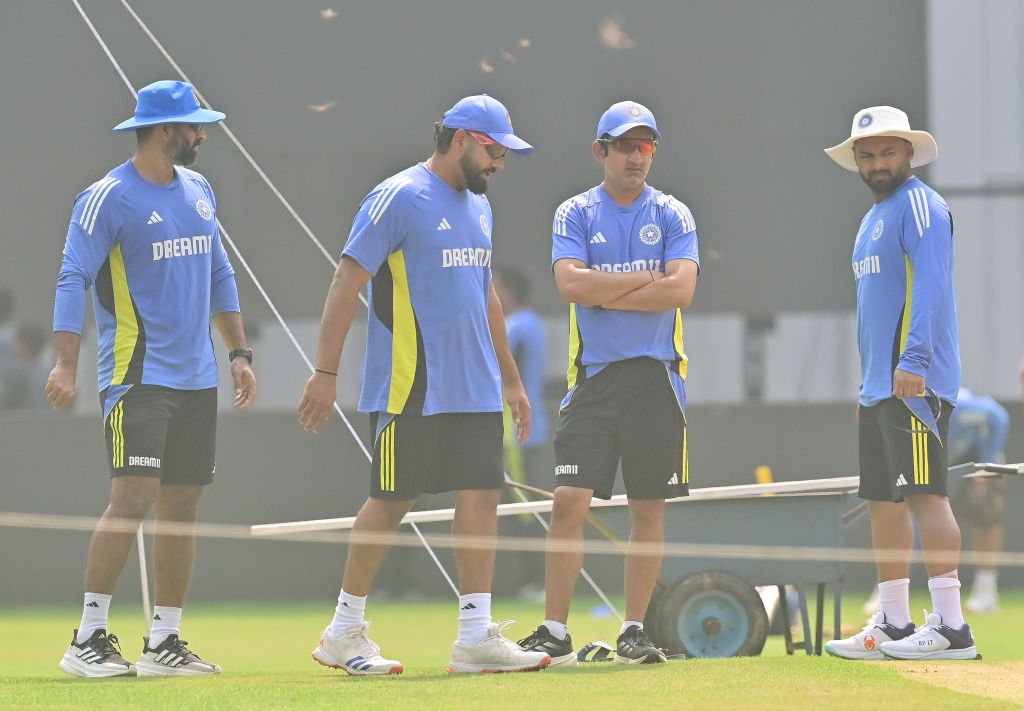
India’s recent defeat in their three-match One-Day International (ODI) series against New Zealand has stirred a sense of determination within the squad. Abhishek Nayar, India’s assistant coach, insists that this setback is not just a loss but a stepping stone that can inspire the team to perform at a higher level. Reflecting on what went wrong, Nayar emphasized that the experience offers valuable lessons, particularly in mental resilience and strategic response under pressure. While the series loss has drawn attention to India’s vulnerabilities, Nayar believes these revelations will ultimately benefit the squad by highlighting specific areas for improvement.
An Unexpected Setback
Going into the series against New Zealand, India held a strong position in the ODI format, backed by consistent performances from top-order batsmen and an aggressive bowling lineup. However, New Zealand’s disciplined bowling strategy and strategic partnerships exposed cracks in India’s form, leading to two critical losses. The unexpected results, especially during the final overs, have raised questions about India’s ability to maintain momentum when put under intense pressure. This vulnerability has, in turn, sparked a renewed focus on team dynamics and game-day adaptability.
For Nayar, the series loss serves as a call to action for the players and coaching staff alike. He noted that while India has excelled in recent years, there is still room for growth, especially as the team gears up for more demanding tournaments. The assistant coach highlighted the need to embrace setbacks as opportunities, which could inspire Indian cricketers to evolve and meet higher expectations on the global stage.
Mental Strength and Adaptability
Nayar’s insights draw attention to the importance of mental resilience in modern cricket, particularly in scenarios where matches are closely contested. Cricket, as Nayar emphasized, is as much a mental game as it is a physical one. The series loss to New Zealand revealed gaps in India’s adaptability, particularly when dealing with tough opponents who know how to leverage pressure. This, according to Nayar, is an area where India must develop greater toughness.
New Zealand’s bowlers successfully challenged India’s top and middle-order batsmen, who struggled to counter high-pressure situations with calculated shot selection and pacing. Nayar believes that improving mental strength and training players to adapt in these critical moments could prevent similar losses in the future. The team’s response to this adversity may, therefore, be a crucial component in their approach moving forward. The assistant coach also acknowledged that younger players, who are still learning the rigors of international cricket, will gain invaluable experience from this series, equipping them with the skills to handle pressure-filled matches.
Lessons for India’s Middle Order
One of the main talking points from the series has been the performance of India’s middle order, which faltered at key points, particularly during the second ODI. In the face of tight bowling from New Zealand’s experienced bowlers, India’s middle-order batters found it challenging to maintain a steady scoring rate. Nayar pointed out that this series highlighted a recurring issue that could affect India’s performance in larger tournaments: an over-reliance on the top order and a lack of resilience when the middle order is under duress.
Players like Shubman Gill and KL Rahul were instrumental in building India’s initial scores, but the team struggled when quick wickets fell, putting immense pressure on the middle-order players. To address this, Nayar suggested that India needs a stronger and more dependable lineup in the middle order, with players capable of stepping up during high-stakes situations. Strengthening the middle order will not only enhance India’s depth but also relieve some pressure on the top-order batters.
Building on Positives: A Growth Mindset
While the loss exposed several weaknesses, Nayar insists that India also has several strengths that they can build upon. India’s pace attack, led by bowlers like Jasprit Bumrah and Mohammed Siraj, continued to show promise. The pace department managed to take early wickets in all matches, consistently providing India with an advantage during New Zealand’s innings. For Nayar, the key is to retain and refine this strength while working on adaptability in the middle order and encouraging players to maintain a growth-oriented mindset.
Nayar emphasized that India’s strengths in both pace and spin bowling provide a solid foundation on which the team can build. The recent series has highlighted the areas requiring attention, but it has also reinforced the team’s strong aspects. By focusing on nurturing a mindset of continuous improvement, Nayar believes India can emerge stronger and more competitive, ready to take on any international challenge.
Preparing for the Future: Strategy and Focus
India’s path forward, as envisioned by Nayar, involves a careful balance of introspection and innovation. He noted that the coaching team is already working to refine strategies and prepare players to tackle challenges like those presented in the New Zealand series. Specifically, the focus will be on enhancing the adaptability of the players, particularly in unpredictable match conditions. Understanding how to remain consistent, even in less favorable conditions, is a skill that the team aims to develop further.
India’s assistant coach stressed the importance of turning setbacks into motivation. Drawing on lessons from previous series, he highlighted the value of setting small, achievable goals and working to achieve them collectively. Building team synergy is critical, as it strengthens unity and reinforces each player’s role in India’s success. Nayar pointed out that the New Zealand series underscored the need for flexibility and an adaptable game plan, particularly when faced with opponents who understand how to apply pressure.

